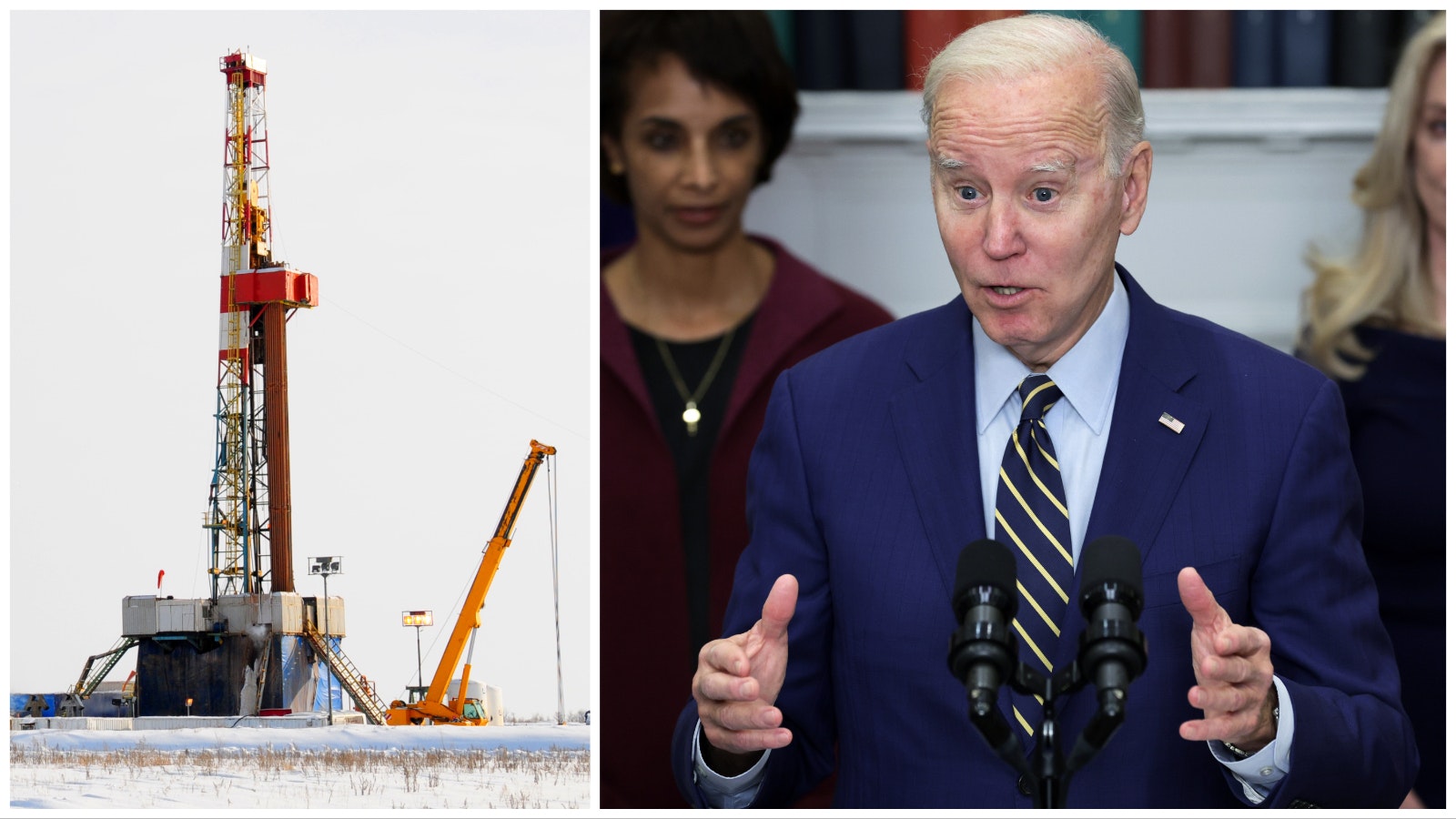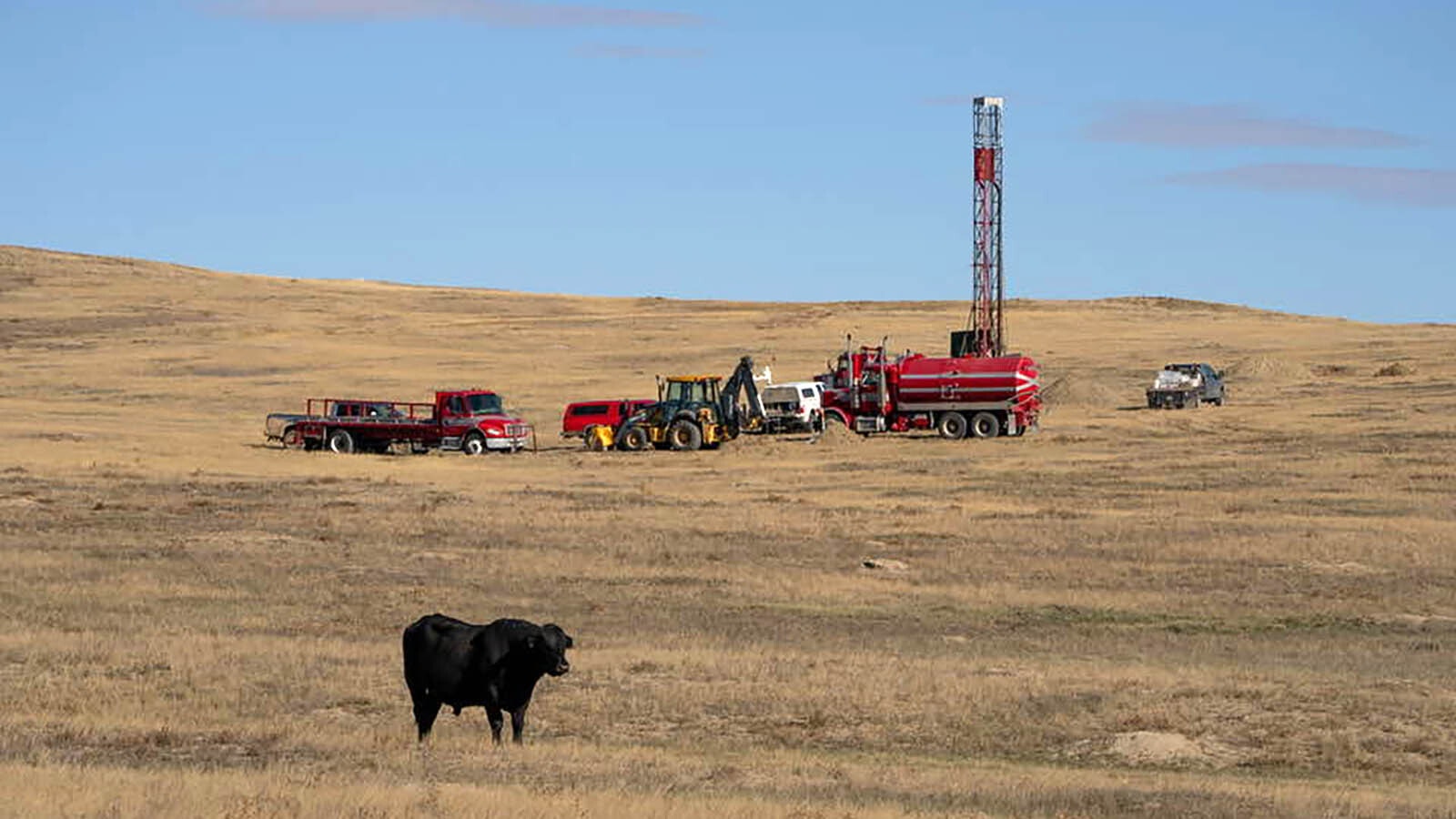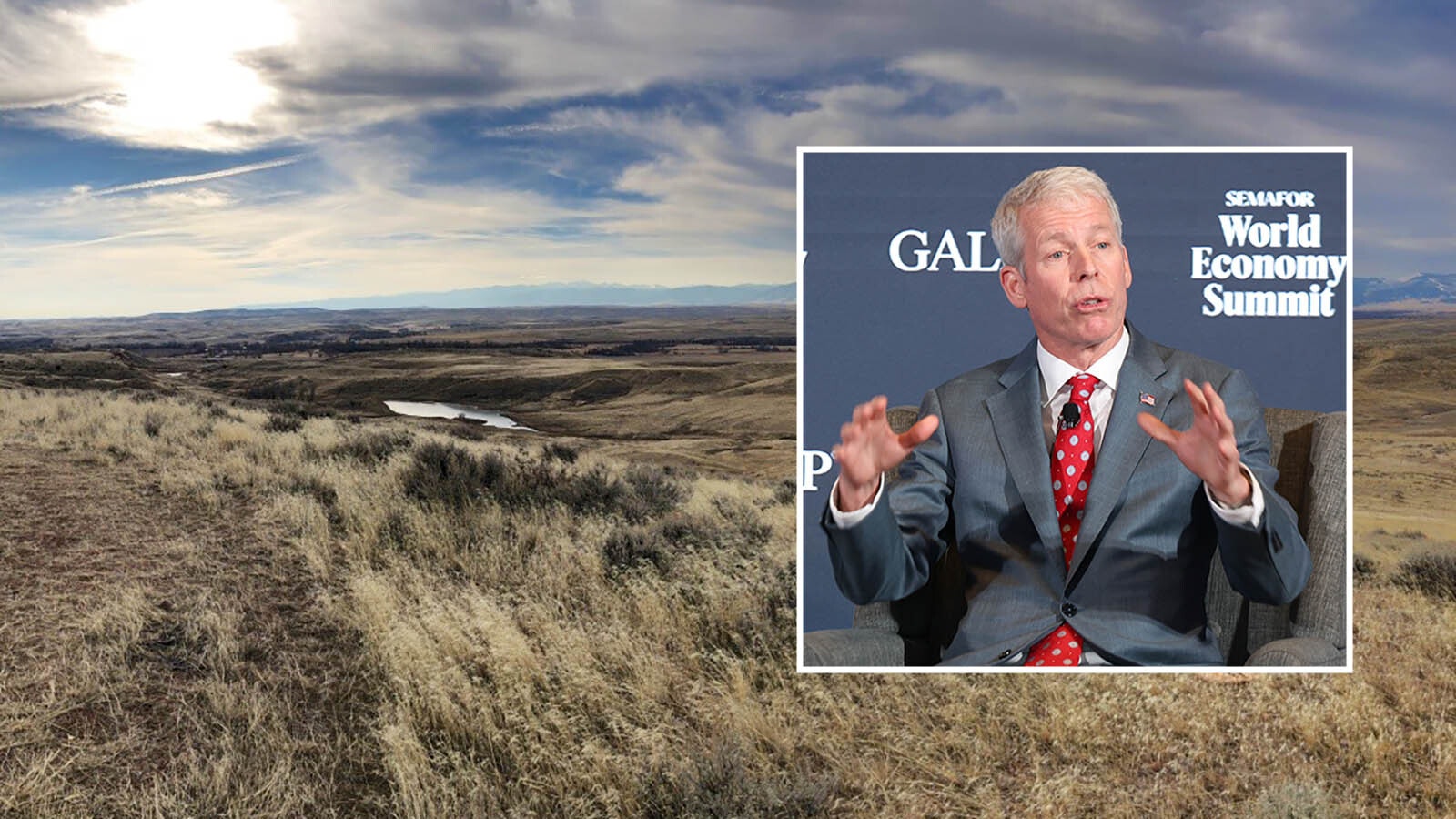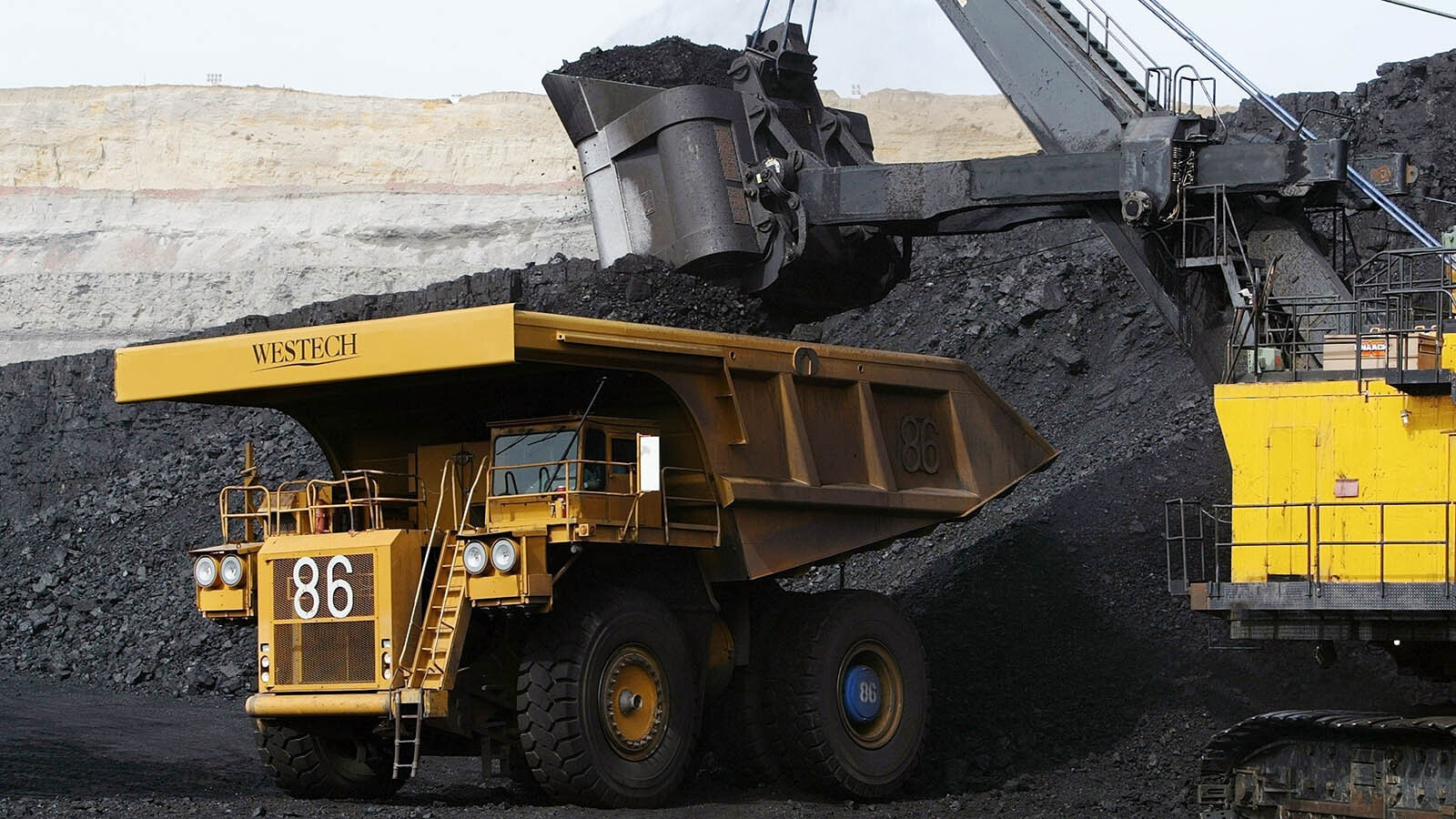President Joe Biden appears to be trying to keep his campaign promise to eliminate the U.S. oil industry, while at the same time giving small concessions to allow for drilling.
While the president tries to have it both ways, energy experts say the uncertainty is hurting the oil industry’s ability to supply the nation with the energy it needs.
Quarterly Leases
The Bureau of Land Management on Friday announced a new round of oil and gas lease sales in Wyoming. The offering consists of 115 oil and gas parcels over 95,000 acres.
Biden has issued the fewest leases of any president since World War II.
The Petroleum Association of Wyoming and the Western Energy Alliance are suing the Department of the Interior for its failure to hold oil and gas lease sales in the third quarter of last year, which the lawsuit argues is required under the Mineral Leasing Act.
This latest round of leases wasn’t a retreat from the Biden administration’s policy on lease sales. The Inflation Reduction Act requires the BLM to offer lease sales in conjunction with issuing permits for wind and solar development on public lands.
Regulatory Uncertainty
Ryan McConnaughey, spokesperson for the Petroleum Association of Wyoming, told Cowboy State Daily that, while the bureau should be issuing quarterly lease sales to be in compliance with the Mineral Leasing Act, these lease sales will help Wyoming producers.
“Our smallest operators just don’t have the resources to lease large numbers of leases to have outlay for several years. They rely on those continuous lease sales in order to be able to have steady operations,” McConnaughey said.
The uncertainty that quarterly lease sales will be offered makes it difficult for companies to plan out their capital investment years in advance, which is important for capital-intensive operations like oil and gas development, McConnaughey said.
Without that certainty, operators may look toward other states that have more development on private or state lands where they can be more certain that leases can be secured.
Two Steps Back
On Monday, Biden took a similar approach with operations in Alaska. He offered the oil and gas industry opportunity with one hand while slapping it away with the other.
The administration approved ConocoPhillips’ Willow project, a large development in Alaska’s National Petroleum Reserve. The day before, however, he declared he would not issue any oil and gas leases for the entire Arctic Ocean.
Rick Whitbeck, Alaska state director for Power The Future, told Cowboy State Daily that Biden is trying to juggle the fact that the nation can’t end fossil fuels as he promised he would do, but he has to keep his base happy.
“Willow is a huge step forward for the state, but the president couldn’t allow that hit to his eco-credibility without getting a few hits of his own,” Whitbeck said.
Closing the Arctic to development removed 15.8 million acres of onshore and offshore development, which amounts to billions of barrels of oil and tens of trillions of cubic feet of gas of development closed to energy consumers, Whitbeck said.
It “was a big hit to Alaska and our economic and energy future,” he said. “It was a giant step forward today, but untold steps back for our nation in the trade-off.”
Two Directions
There’s growing concern that policies are being pulled in two directions. One aims to eliminate fossil fuels as quickly as possible, and the other faces the reality that the impacts of the first policy would be disastrous for the nation.
Whitbeck said the result is a completely irrational path, which could be seen last week at the House Oversight Committee hearing on the Strategic Petroleum Reserve (SPR).
Biden has tried to balance the needs of energy consumers without allowing too much oil drilling by draining the Strategic Petroleum Reserve (SPR) to its lowest level since the 1980s.
After World War II, America realized that having a supply of energy is vital to national defense. The energy crisis during the 1973 Arab Oil Embargo pushed the conversation forward, and President Gerald Ford signed legislation to create the SPR in 1977.
The reserve peaked out at more than 750 million barrels in 2010, according to the U.S. Energy Information Administration. By the time Biden took office, the SPR held more than 638 million barrels. It now holds about 372 million barrels.
Misguided And Dangerous
Energy expert Alex Epstein was invited last week to testify before the House Oversight Committee.
Epstein argued that Biden was avoiding the negative consequences of his poor energy policies by using the SPR in a way that it was never intended. As a result, he was greatly undermining the nation’s security for entirely misguided political reasons.
Before Epstein could make his arguments, Rep. Cori Bush, D-Missouri, accused Epstein of being a white supremacist based on a 2000 article he wrote for his college newspaper in which he argued that cultures that embraced liberty and individual rights, which led to the first nations to oppose things like slavery and genital mutilation, are superior to those that didn’t embrace such values.
Deflection
For reasons that are unclear, Bush characterized these as arguments for racial supremacy of whites.
Epstein stood by his story, explaining that he was writing about the supremacy of ideas. To associate ideas with skin color, Epstein said, is racist.
He has since demanded an apology and the Democratic Oversight Committee responded with a press release accusing Epstein of promoting a “white nationalist ideology.”
This was how a discussion on policies regarding the SPR played out. Whitbeck said the nation needs better energy leadership.
“Fossil fuels are so critical to our way of life that even eco-hypocrites like Congresswoman Bush can’t transition away from them,” Whitbeck said. “When that is pointed out to members of Congress, their stock response is to deflect,= and even call out the queries as racially motivated.
“If their proposed transition were so effective and affordable, they wouldn’t have to force it upon the American public.”





